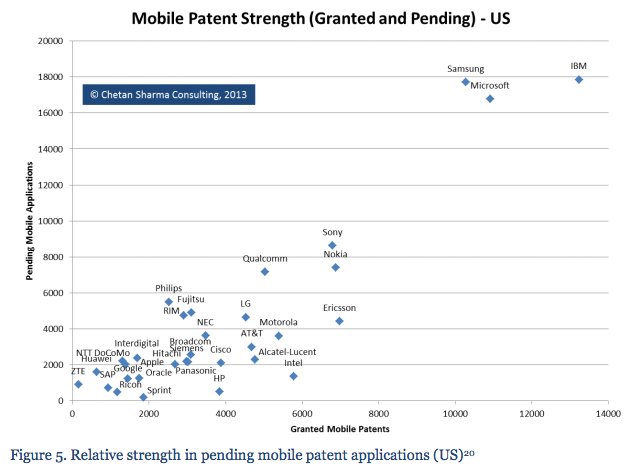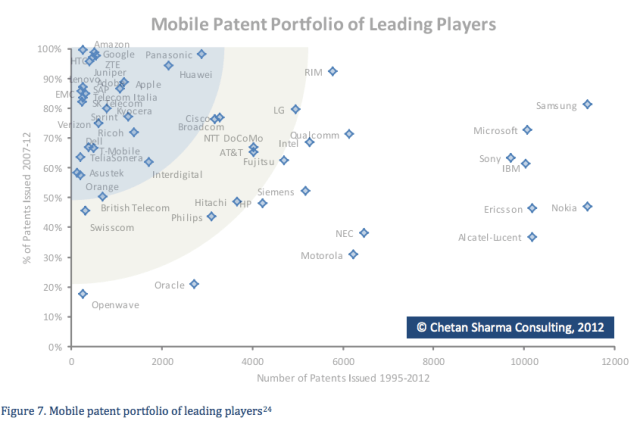
Samsung lost out big to Apple last year in a mobile patent blowout in the U.S., but it’s been slowly building up an arsenal of patents that potentially will keep it from falling into the same situation again. Samsung, also currently the world’s biggest mobile company, received the most mobile patents in 2012, and it now holds the most mobile patents of any company worldwide, according to the latest patent report out from mobile analyst Chetan Sharma, which lays out a thicket of companies scrambling to put a legal seal on their intellectual property in the fast-moving world of wireless communications.
For his study, Sharma looked at more than 7 million mobile patents awarded in the U.S. and Europe, the two biggest markets for patents globally at the moment. He found that the U.S. has stolen a march over its old world counterpart since 1996. The U.S. accounts for nearly three-quarters (72%) of all mobile patents across the two regions.
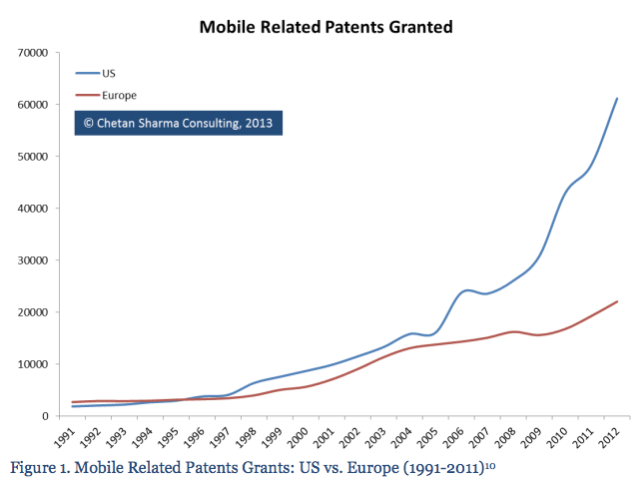
Within the wider world of technology patents, mobile in particular is on the rise. In the U.S., Sharma believes that by the end of this year mobile patents will account for 25% of all patents granted, compared to just 5% in 2001. In Europe, mobile patents will be 10% of the whole patent pool.
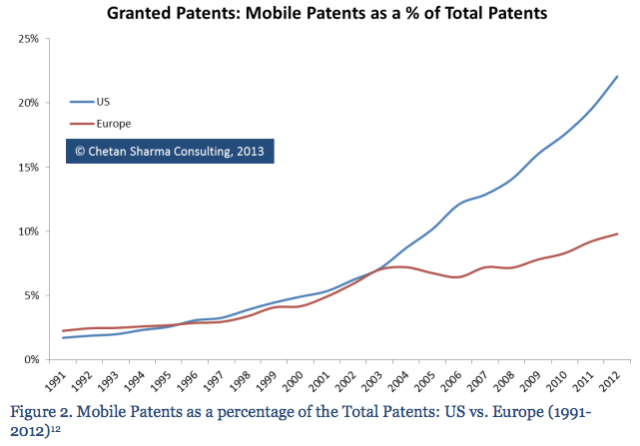
There are a couple of reasons for this. Not only is mobile in a rapid period of development at the moment — the growth of smartphone and tablet usage is fuelling a massive market for services, hardware features, networking innovations and more. But in addition to that, mobile patent litigation has, for better or worse, proven to be lucrative for those who win — either by way of licensing fees (one example: the cut that Microsoft gets on Android devices) or court victories (the $1 billion Apple/Samsung case perhaps being the most notable example, even if it is still getting contested).
On the European side, the fact that the proportion is lower could be due to fewer companies in the region putting as much emphasis on R&D as in the U.S., but also it is a comment about the wider shifts in gravity that we see in the tech world. On that note, it’s also interesting to note that 2011 was the first year that China outstripped the U.S. in patent growth — 22% that year compared to 3.3% for the U.S. and 3.8% worldwide — although it is still far behind the U.S., Europe and Japan in terms of actual patents. “The numbers of foreign filings are now in the majority for both the applications filed as well as the patents granted,” Sharma notes.
Sharma notes that Samsung’s rise to the top has bumped Nokia from its traditional position as biggest mobile patent holder. Others that are still making the top-10 include Sony, Microsoft, RIM, LG, Qualcomm, Ericsson, Panasonic, Alcatel-Lucent, and Nokia. The full ranking for mobile patents granted in 2012 is as follows:
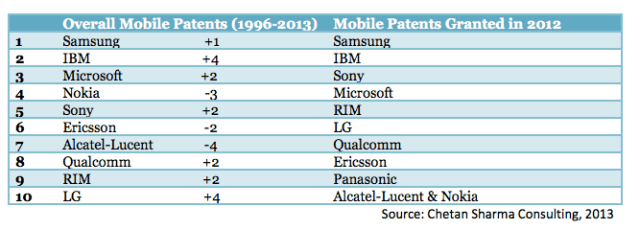
Among mobile operators AT&T, NTT Docomo and Sprint took the top-three slots — but their numbers were too low to get them to compete against vendors.
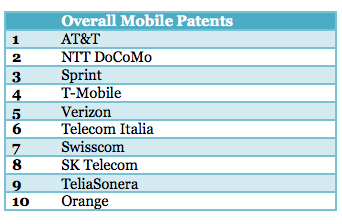
Part of Samsung’s prominence in patents, meanwhile, is down to fact that it covers a wide range of business pieces, similar to Nokia in its heyday. It led not only in device patents, but also infrastructure and platform — the one category where Apple also made it into the top 10:
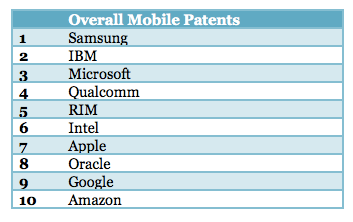
For a look at what may be coming on the horizon, Sharma also looks at patent applications. He notes that patent applications grew by some 61% in 2012 compared to the same period 10 years ago. Taking into account granted and pending patents, IBM stands out ahead of the group, with Microsoft and Samsung closing in.
